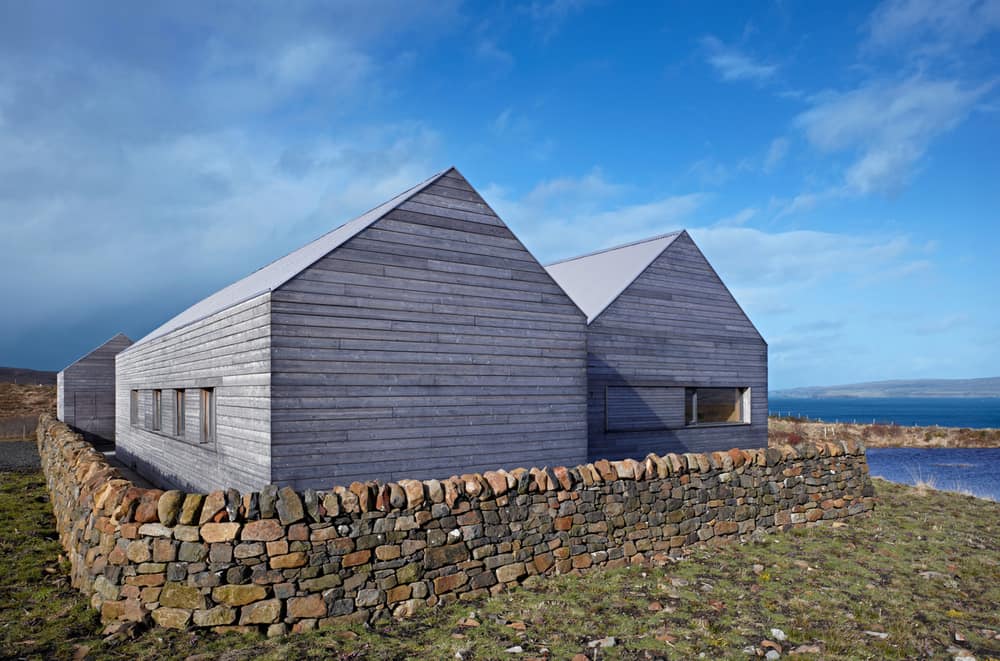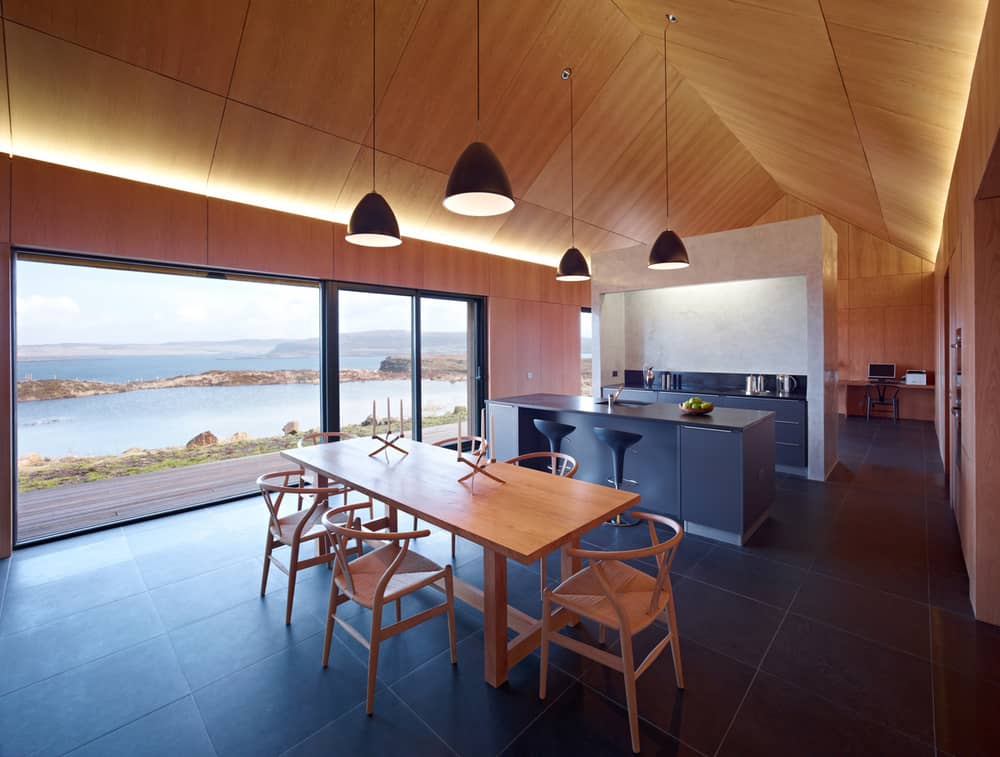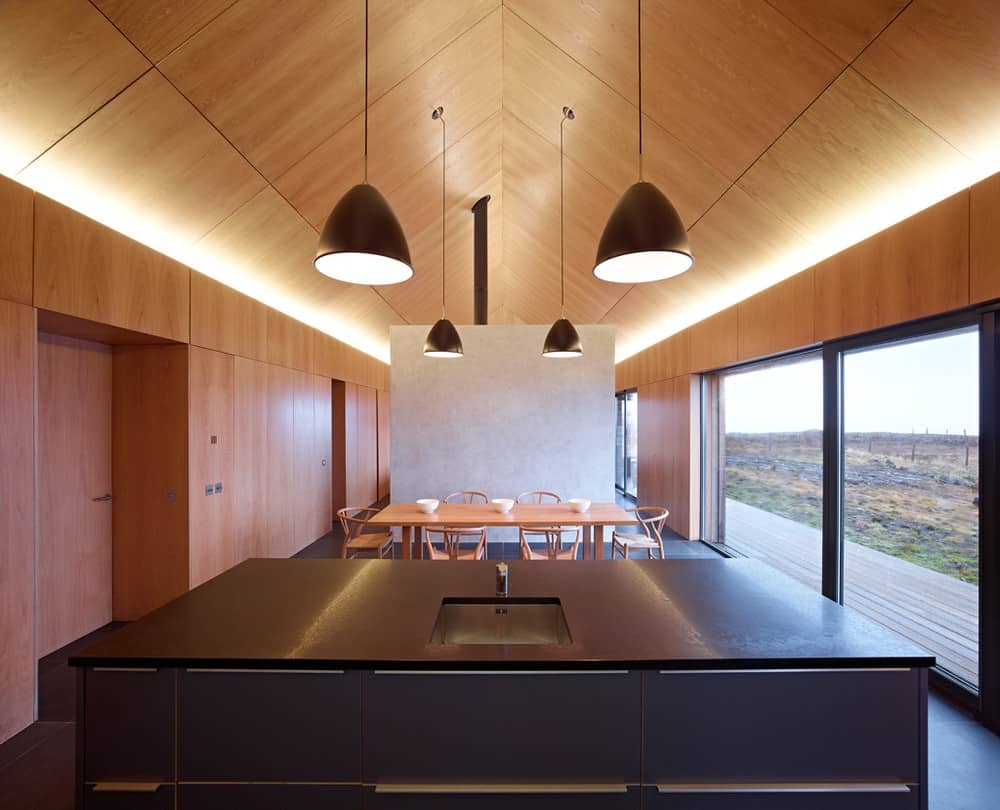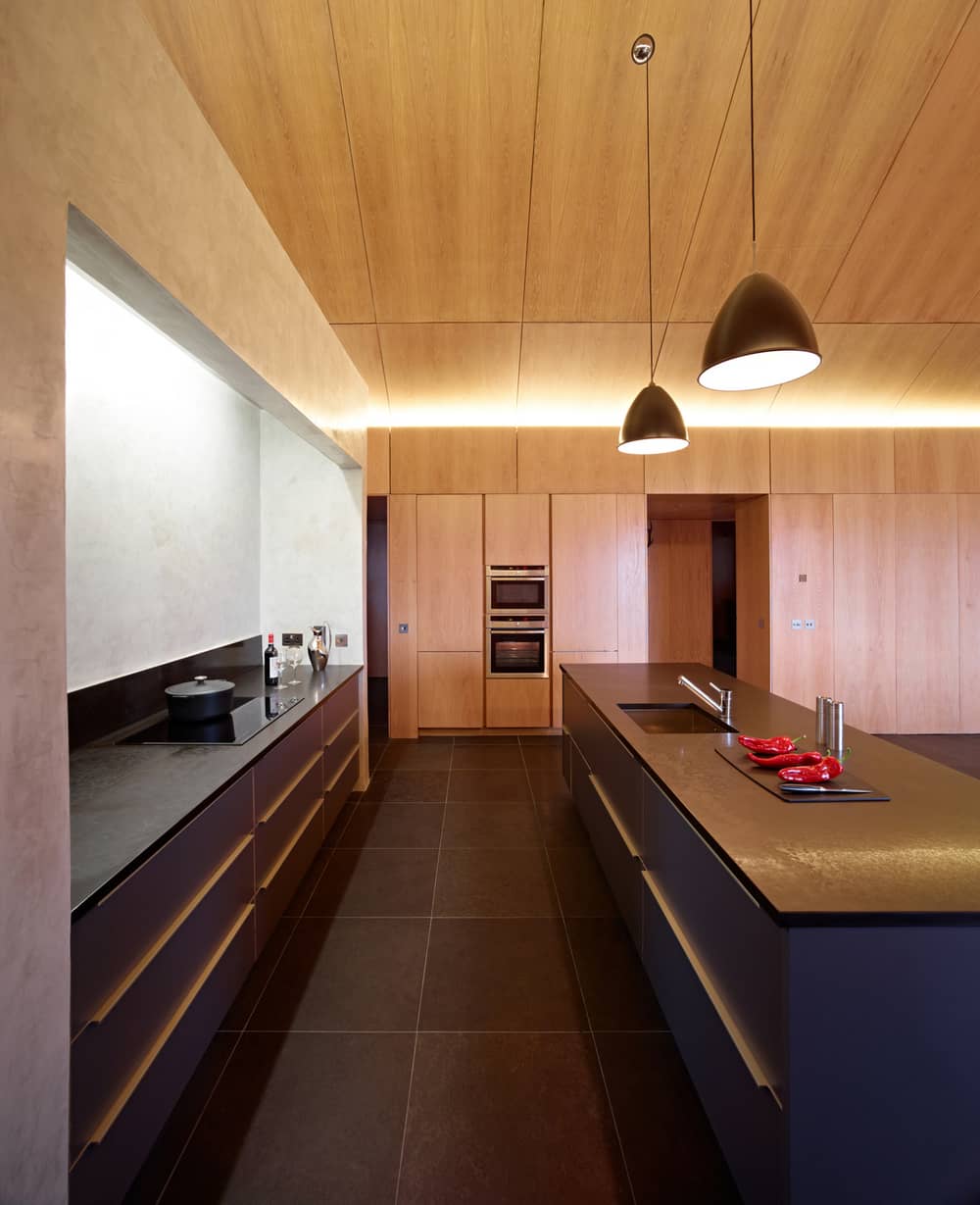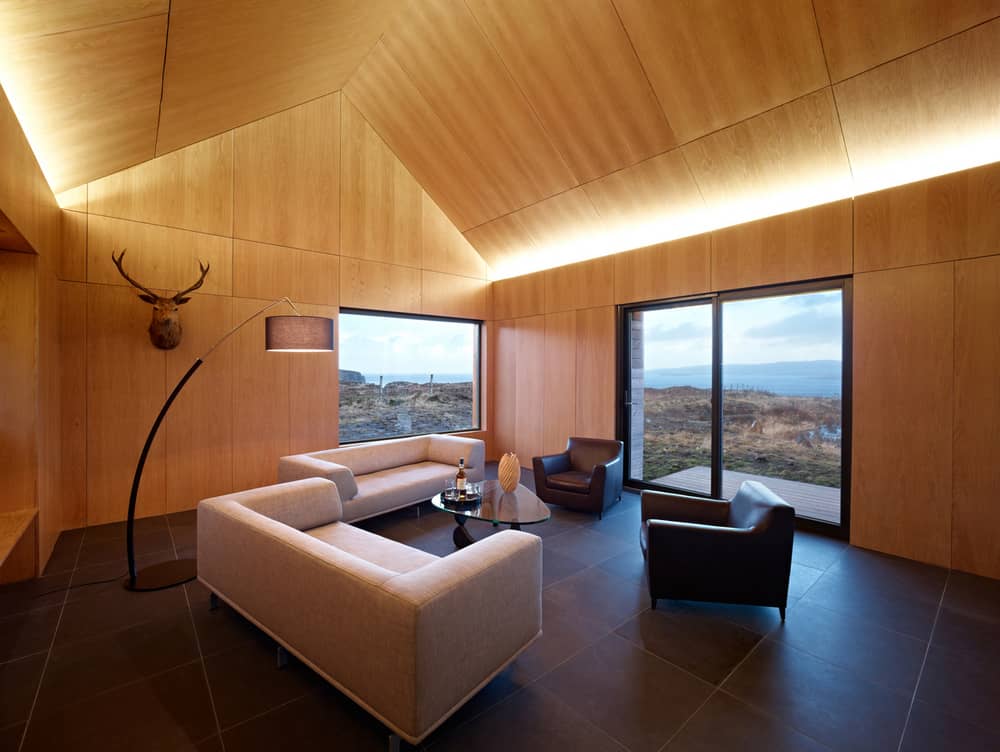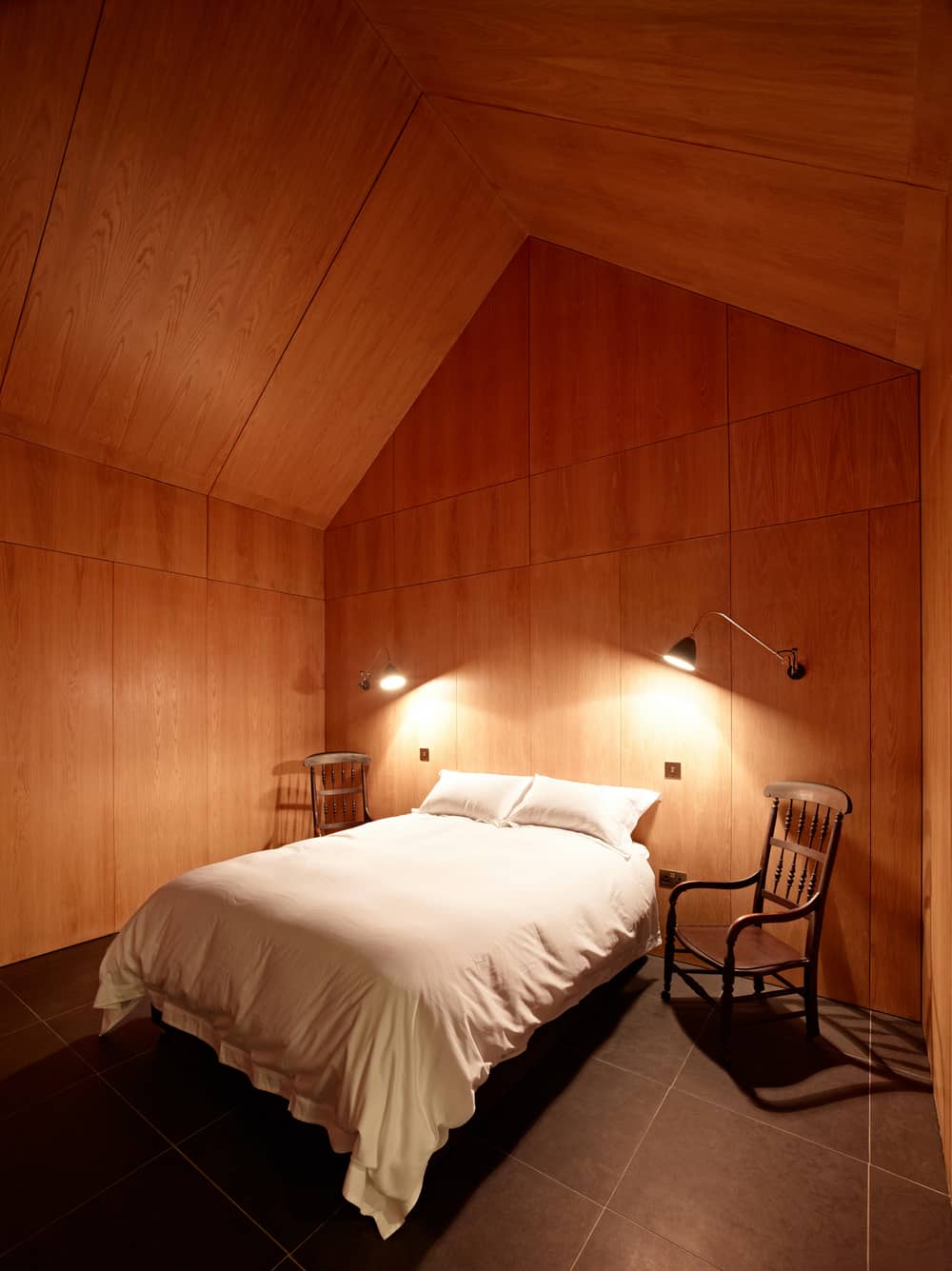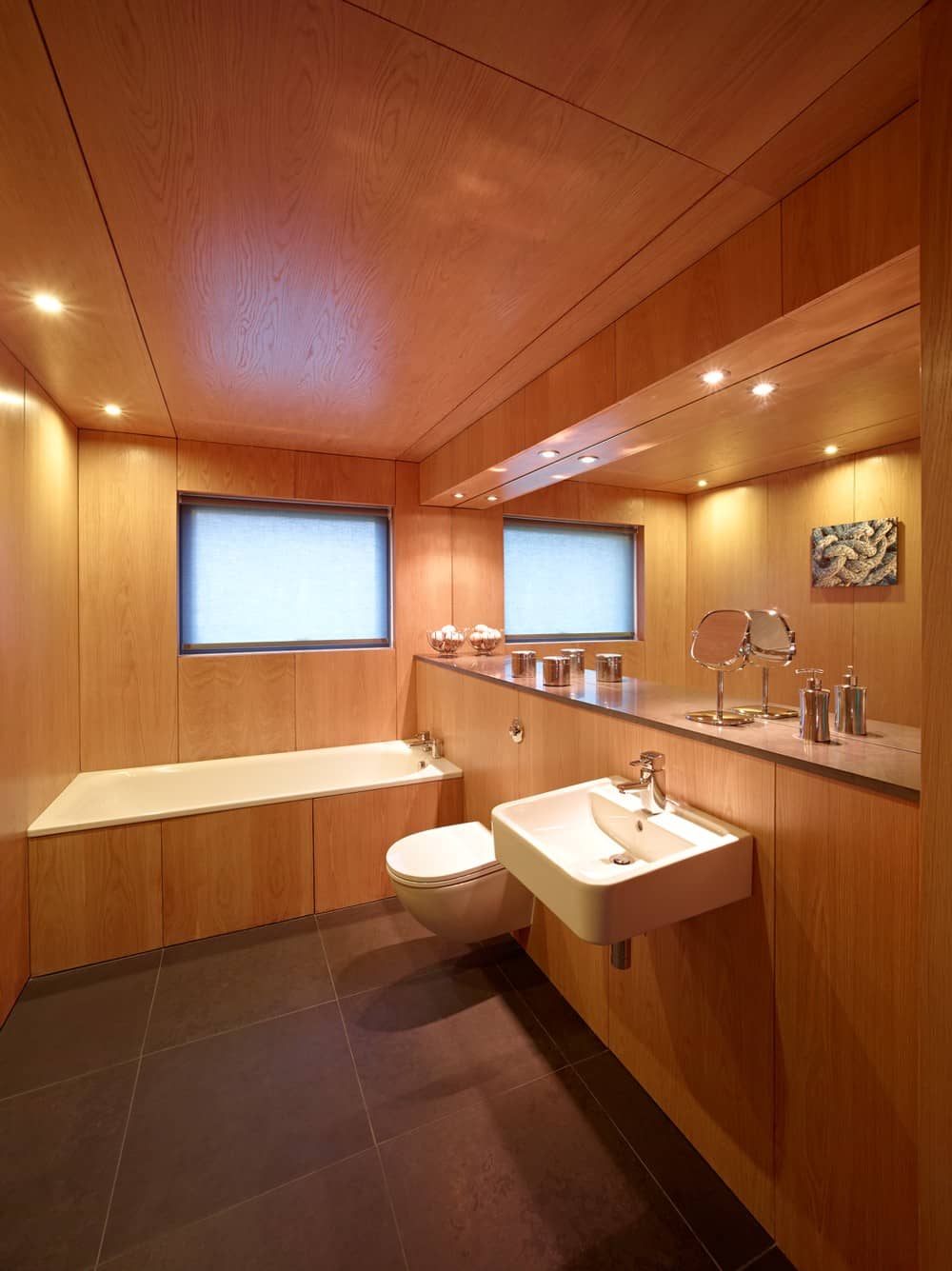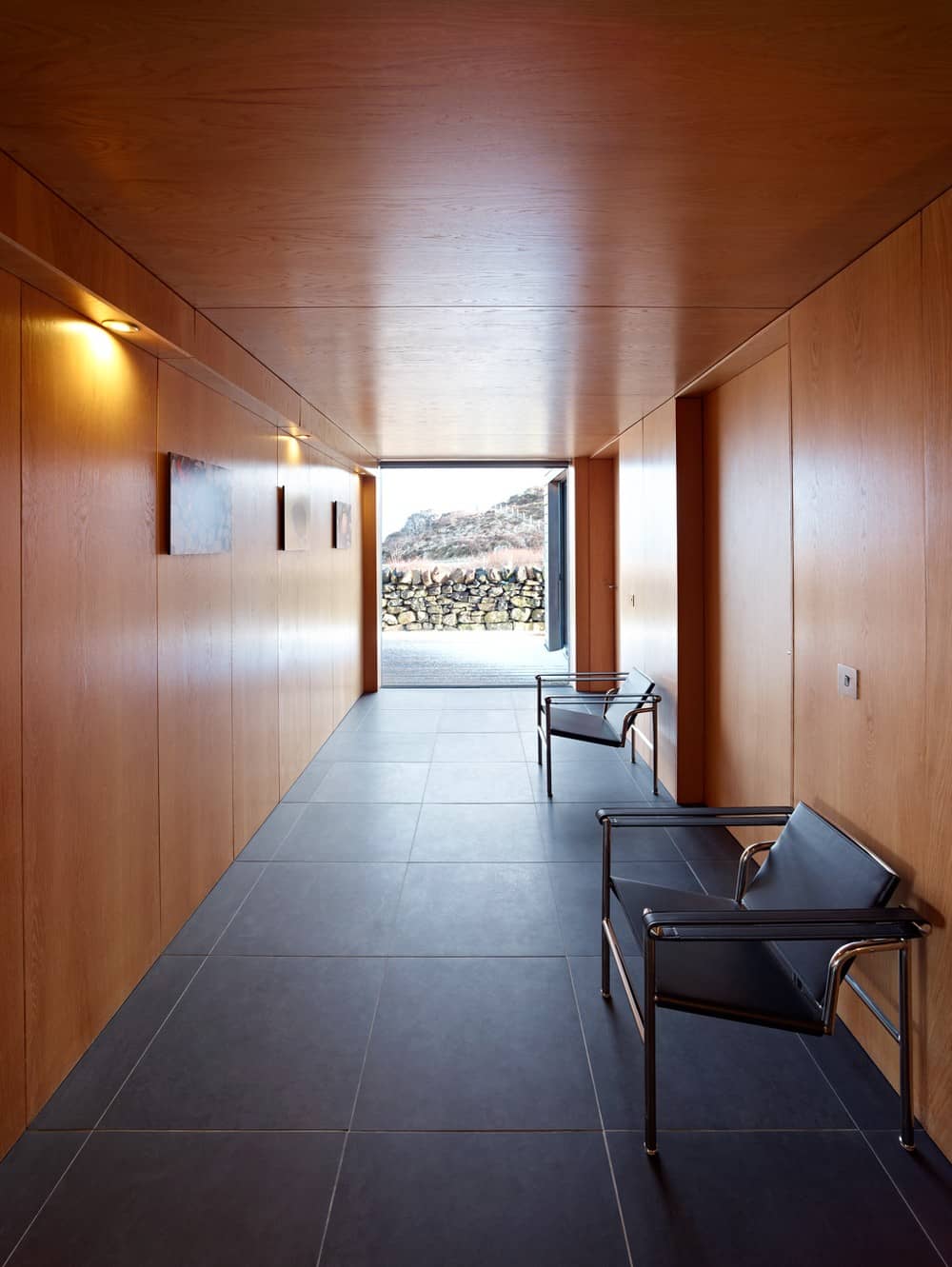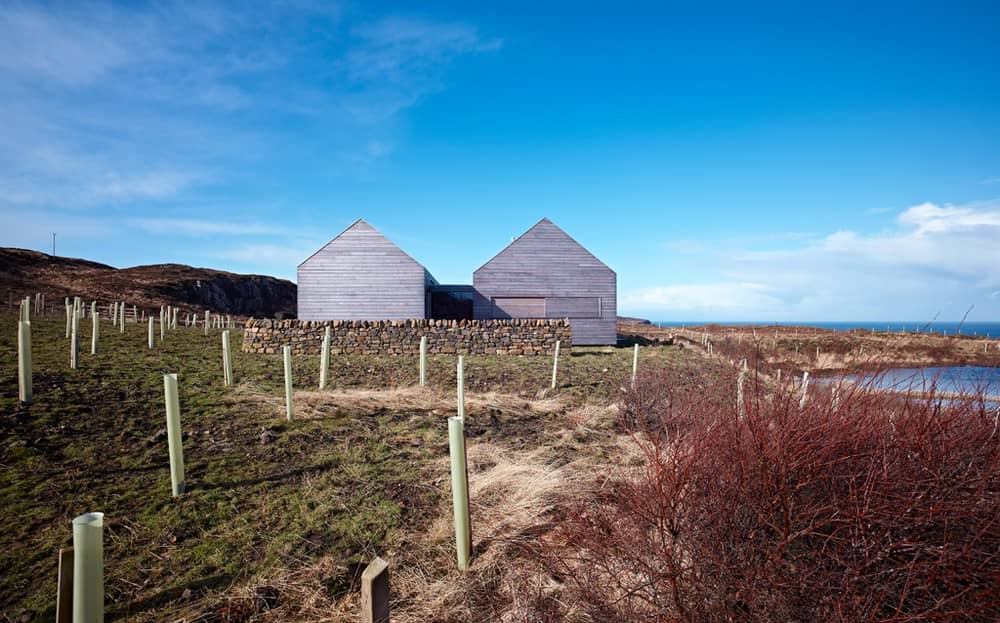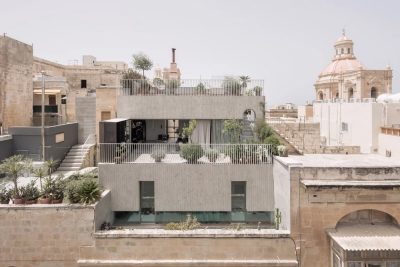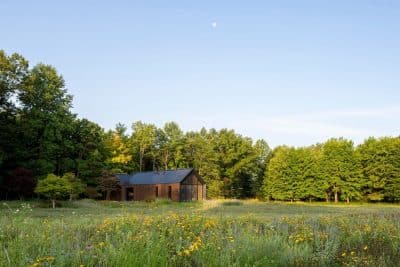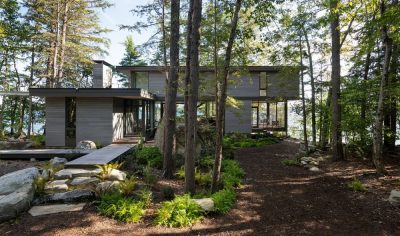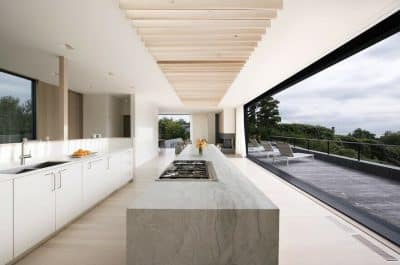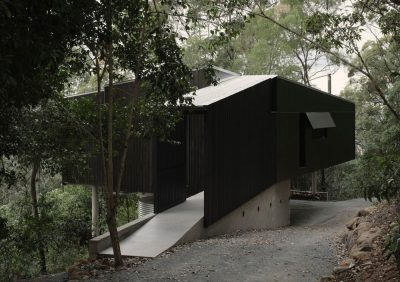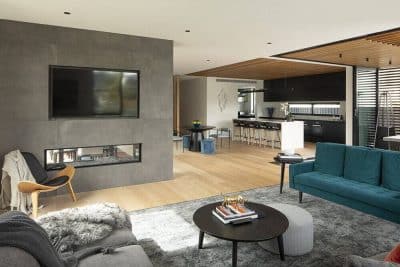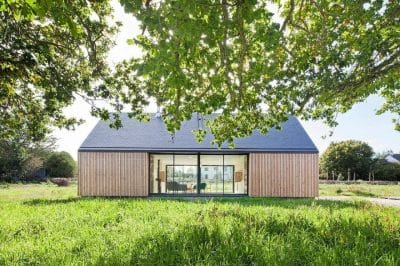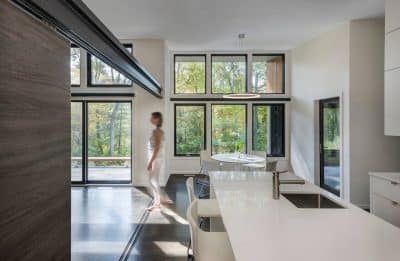Project: Boreraig House
Architects: Dualchas Architects
Location: Galtrigill, United Kingdom
Photo Credits: Andrew Lee
Courtesy of Dualchas Architects
This multi-award winning house has been inspired by the Scottish blackhouse, but abstracted in to modern architecture. The client inherited the croft from his mother, and he wanted to build a home that connected with the landscape and the local heritage.
Boreraig House is built for a Buddhist in a deeply Presbyterian part of Skye. The religions share a sense of dignity, quiet and respect. The intention was to create a calm, contemplative space for our client to escape the city and spend time with his friends.
What was the brief?
Our client wanted a tranquil space where they could view the extraordinary landscape, but also feel secure from the often ferocious weather. They wanted the buildings to be modern, but have a continuity with the past – to have a connection to the traditional dwellings of the area, and to use materials which allowed it to be low impact – to be part of the topography.
Internally, they wanted refined detailing and limited materials – timber and stone were used: oak-faced ply panels and Caithness stone laid out on a 600mm grid.
How did the context inform the design?
The site is exposed, and had a large bowl of scrubland to the front which was not particularly attractive, despite the wider views to the Outer isles and the Cuillins of Skye.
It was decided to dam the outflows from the bowl so that a lochan was created. This brought water much closer to the proposed location of the house, transforming the context. External materials were chosen so that the building would blend in with the materials of the surroundings. Metal gates and fence wire, larch fence posts, stone walls were the inspiration.
What was the architectural approach?
The intention was make the house unobtrusive in the landscape, to give the client privacy but allow him to enjoy the views.
Firstly, the building was broken up in to three elements – the main living spaces, the bedroom and entrance wing, and a studio. This meant the spans could be narrow and the roofs low.
An external stone wall demarcates the access and parking, which is public, before entering in to a private space. A wall of the external studio also conceals the air source heat pump and the bins – clutter is concealed – simplicity is sought, inside and out.
In what ways is the Boreraig House sustainable?
It is the view of Dualchas that true sustainability comes from designing buildings that future generations will cherish – by designing with a continuity with the past, and trying to make the building beautiful, this is more likely – and less likely it will be demolished.
Larch has been used externally, along with locally sourced stone. Internally, Caithness stone and timber has been used predominantly. The building has high insulation values and is carefully sealed with a breathable membrane to prevent heat loss. An air source heat pump with underfloor heating set in a screed under the Caithness stone heats the building. External shutters close off the building, protecting and sheltering from the worst Atlantic storms.

